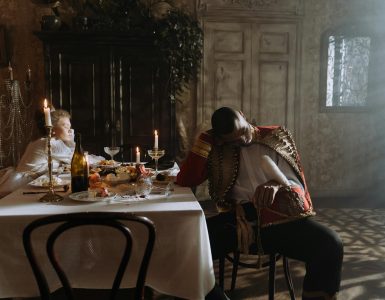History? Boring? Think again! While textbooks often focus on the grand sweep of events, the *real* story is filled with quirky characters, unexpected twists, and moments so bizarre, they’d make a sitcom writer green with envy. Let’s dive into some of history’s less-than-serious moments, the sidebars and footnotes that often get overlooked.
The Day the Pope Nearly Got Roasted
We all know about the Great Fire of London in 1666, a catastrophic event that ravaged the city. But did you know that Pope Clement X, hearing of the fire, sent a sizeable donation to help rebuild the city? That’s not the weird part. The truly odd bit is that this generous donation almost never arrived. The ship carrying the money was attacked by pirates! Thankfully, the pirates were eventually apprehended, and the funds were recovered. Can you imagine the headlines? “Pirates Rob Pope’s Charity; London’s Rebuilding Efforts Threatened!” Talk about a plot twist.
The Case of the Mistaken Identity (and a Very Lucky King)
In 1485, the Battle of Bosworth Field dramatically changed the course of English history. This is where Richard III, the last Plantagenet king, met his demise at the hands of Henry Tudor, who became Henry VII. Textbook accounts often focus on military strategy. But have you ever considered the sheer luck involved? Richard III’s army was significantly larger and better equipped. However, a crucial mistake, likely involving misidentification of Henry Tudor’s banner on the battlefield, triggered a chain reaction of confusion and panic within Richard’s ranks. This small error, a simple case of mistaken identity in the thick of battle, essentially sealed the fate of a king and a dynasty. It’s a perfect example of how the smallest details can have the most profound consequences. Was ist die Geschichte hinter der ersten Mondlandung?
The Accidental Invention That Changed the World (Twice)
Ever heard of the discovery of penicillin? It’s typically framed as a brilliant scientific breakthrough by Alexander Fleming. While undeniably brilliant, the story contains a rather comical element. Fleming, a bit of a messy scientist, accidentally left a petri dish of staphylococcus bacteria uncovered. Upon returning, he noticed a mold had contaminated it, and this mold – *Penicillium notatum* – was killing the bacteria! He didn’t immediately recognize the implications, almost discarding the dish! It was only later that he fully understood the significant discovery. Talk about a lucky accident! This accidental discovery, almost lost, went on to save millions of lives.
Die große Melasseschwemme: Eine heikle Situation
Boston, 1919. Picture this: a giant tank of molasses, the height of a five-story building, bursting open. The resulting wave of sticky, syrupy devastation swept through the city, killing 21 people and injuring 150. This wasn’t some natural disaster; it was an industrial accident, a truly bizarre and tragic event. Many accounts mention the sheer force of the molasses wave, capable of toppling buildings and sweeping people away like leaves in a storm. The sticky aftermath was equally catastrophic, and it took days to clear the mess. The Great Molasses Flood is a reminder that even seemingly harmless substances can become incredibly destructive factors under the wrong circumstances.
The “Accidental” Discovery of X-Rays
Wilhelm Conrad Röntgen’s discovery of X-rays is a classic example of a scientific breakthrough fueled by accidental observation. While experimenting with cathode rays, he noticed a peculiar glow on a screen nearby, even though the tube was shielded. This glow was caused by an unknown type of radiation, which he dubbed “X-rays” to denote the mysterious nature of the phenomenon. He wasn’t looking for X-rays; they just happened upon him, showcasing how scientific discoveries can sometimes happen when you’re least expecting them. This accidental discovery not only revolutionized medicine but also completely changed the field of physics.
The Unexpected Hero of the American Revolution: A Smallpox Vaccine
The American Revolution was a clash of armies, strategies, and ideologies. Yet, a silent, unsung hero played a pivotal role: the smallpox vaccine. While not a person, the vaccine’s existence massively impacted the war. The Continental Army suffered far fewer casualties from smallpox than the British. British soldiers, without widespread access to the inoculation, suffered significantly more deaths from smallpox than from battles. This crucial factor, often overlooked, shifted the balance of power in many ways. The vaccine, although not a battlefield weapon, was a vital tool in the American victory.
Der seltsame Fall der tanzenden Pest von 1518
This one is truly bizarre. In 1518, in Strasbourg, France, a woman started dancing uncontrollably in the street. Within days, dozens, then hundreds, joined her. This wasn’t a joyous dance; people reportedly danced for days, weeks, even months, until they collapsed from exhaustion. Some died from heart attacks or strokes. The “Dancing Plague” remains a historical medical mystery, with theories ranging from mass psychogenic illness to ergot poisoning. It’s a stark reminder that even in the past, collective psychosomatic behaviour could have devastating consequences.
The Lost Colony of Roanoke: A Mystery That Endures
The story of the Lost Colony of Roanoke, a 16th-century English settlement that vanished without a trace, is shrouded in mystery. While the exact fate of the colonists remains unknown, the single word “Croatoan” carved into a post is the only clue left behind. Various theories abound, ranging from assimilation with the local Native American tribes to a devastating disease outbreak. It’s a chilling tale of vanished hope in the face of the unknown and a reminder that history isn’t always neat and tidy. It fuels our thirst for answers to this day.
These are just a few examples of history’s unexpected turns and hilarious hiccups. Digging beyond the surface of historical events reveals a world far more colorful, strange, and ultimately, more human than what’s often presented in textbooks. So, next time you’re reading about a historical event, remember to look for the footnotes, the sidebars, and the often-unseen details– you might just discover a hidden story, a humorous anecdote, or a fascinating twist that completely alters your perspective.

























Kommentar hinzufügen